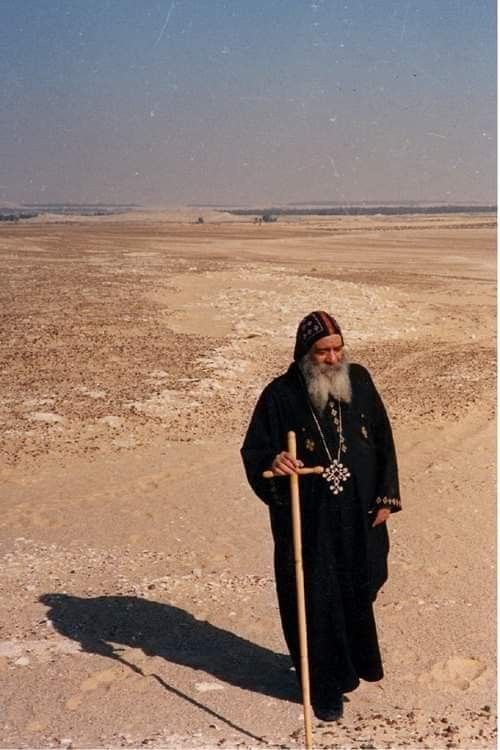The Coptic Orthodox Church, one of the oldest Christian denominations in the world, traces its origins back to the apostolic era in Egypt. Rooted in a rich tapestry of theological foundations and historical narratives, it stands as a testament to the enduring legacy of early Christianity. Understanding what it means to be a Coptic Orthodox Christian requires an exploration of intricate beliefs and time-honored practices that form the backbone of this vibrant community.
At the core of Coptic Orthodoxy is the belief in the Trinity: God exists in three consubstantial persons—the Father, the Son, and the Holy Spirit. This foundational tenet is celebrated in liturgical rites and personal devotion alike. The Copts believe that Jesus Christ, the incarnate Son of God, became man to save humanity from sin and death. This crucial element of their faith offers both theological depth and a narrative of divine compassion, reflecting God’s relentless pursuit of humanity’s redemption.
The Coptic Orthodox Church lays claim not only to a profound Christological orientation but also emphasizes the significance of the Virgin Mary, who is venerated as Theotokos, meaning “Bearer of God”. The honor bestowed upon her transcends mere reverence; she is regarded as an intercessor and a symbol of purity and devotion. The Copts celebrate various feasts dedicated to Mary, particularly the Feast of the Assumption, which underscores her vital role in the salvation narrative. This celebration provides insight into Coptic spirituality, aligning earthly experience with sacred climax.
The Coptic Orthodox faith is deeply intertwined with its distinctive ecclesiastical authority and sacramental system. The Pope of Alexandria—currently Pope Tawadros II—serves as the spiritual leader, embodying a lineage that harks back to St. Mark the Evangelist. His role is not only ecclesiastical; it also extends into the socio-cultural dimensions of Coptic life, fostering community cohesion and guiding moral teachings amidst contemporary challenges.
Central to Coptic belief is the sacraments; these are viewed as conduits of divine grace. Baptism, Eucharist, and Confirmation stand out among the seven sacraments recognized by Coptic Orthodoxy. The sacrament of Baptism is particularly significant, symbolizing the believer’s rebirth and incorporation into the Church. The Coptic practice of infant baptism emphasizes the doctrine of original sin, marking the availability of grace from the earliest days of life.
The Eucharist, or Holy Communion, is celebrated with an air of reverence. It is believed that during the Divine Liturgy, the bread and wine become the actual Body and Blood of Christ—a doctrine known as transubstantiation. This belief underscores the deep sacramental theology that permeates Coptic spirituality and reinforces the communal aspect of faith, as congregants partake together in this sacred mystery.
Coptic liturgical worship is characterized by its rich symbolism and ancient rites. The Divine Liturgy, primarily conducted in Coptic and Arabic, involves elaborate rituals that transport worshippers back to early Christian practices. The use of incense, sacred vestments, and processions enhances the sensory experiences of worship, inviting participants to engage their hearts, minds, and bodies in the act of reverence. The rhythm of chants and hymns, composed in various languages, creates an ambiance steeped in history, arousing a recognition of the divine presence.
Additionally, a remarkable feature of Coptic Orthodoxy is its profound connection to its monastic heritage. St. Anthony, often heralded as the father of monasticism, inspires a commitment to asceticism and a life of prayer. This spiritual tradition is still visible today, as many Copts pursue monastic life, seeking intimacy with God through solitude, fasting, and meditative prayer. These practices highlight a distinctive aspect of Coptic spirituality that prioritizes an inward journey towards divine communion.
Coptic Christians observe a liturgical calendar filled with feasts and fasts that punctuate their spiritual journey. One of the most significant periods is the Great Lent, a 55-day fast preceding Easter, which serves as a time for self-examination, repentance, and renewal of faith. The fasting regimen—often rigorous—encourages discipline and reflection, fostering spiritual growth in preparation for the joyful celebration of the Resurrection. Such observances not only anchor believers’ faith in historical events but also cultivate resilience within the community, fortifying their identity amid trials.
Moreover, the Coptic Orthodox Church has faced considerable challenges through its history, from inheriting rich traditions to navigating persecution. Yet, it has remained steadfast, preserving the essence of its teachings while expanding its diaspora globally. The community adapts to contemporary contexts while remaining anchored in ancient traditions, which is clearly evidenced in its outreach and pastoral programs that support both Copts and non-Copts alike.
In essence, to be a Coptic Orthodox Christian is to be immersed in a tapestry woven with faith, tradition, and a resilient spirit. The rich theological underpinnings, coupled with vibrant liturgical practices, foster a distinct identity characterized by deep reverence for God, a commitment to communal life, and a hopeful outlook amid societal challenges. Understanding these dimensions offers a compelling glimpse into a vibrant expression of Christianity, rich with Scriptures, saints, and a legacy that continues to inspire countless lives today.
In conclusion, the journey into Coptic Orthodoxy reveals not merely a set of beliefs, but a way of life—a profound fusion of faith, culture, and history. Each encounter with its mystical traditions provides an invitation to contemplate a deeper understanding of spirituality and the divine narrative that continues to unfold in the modern world.



